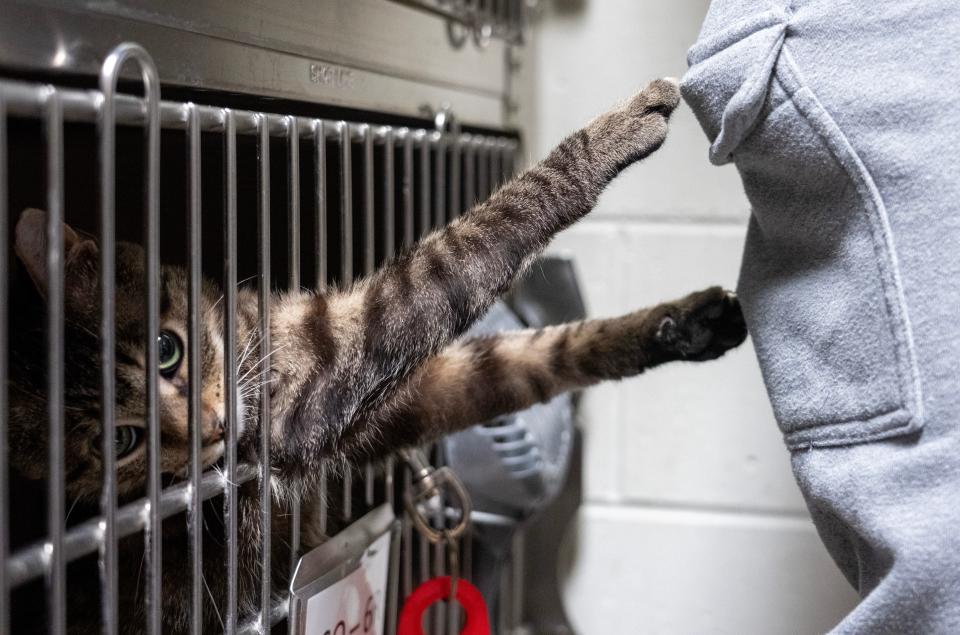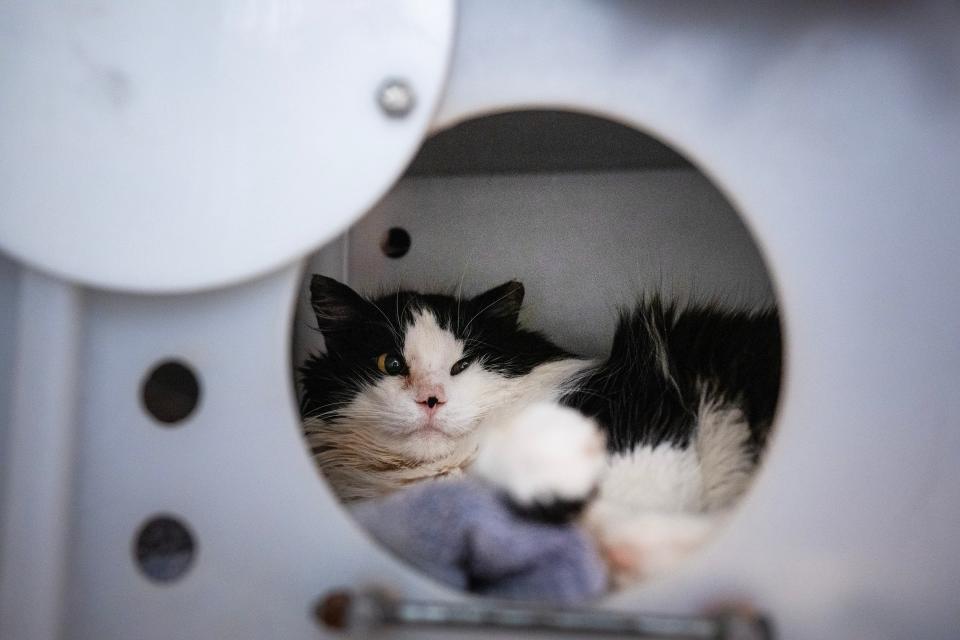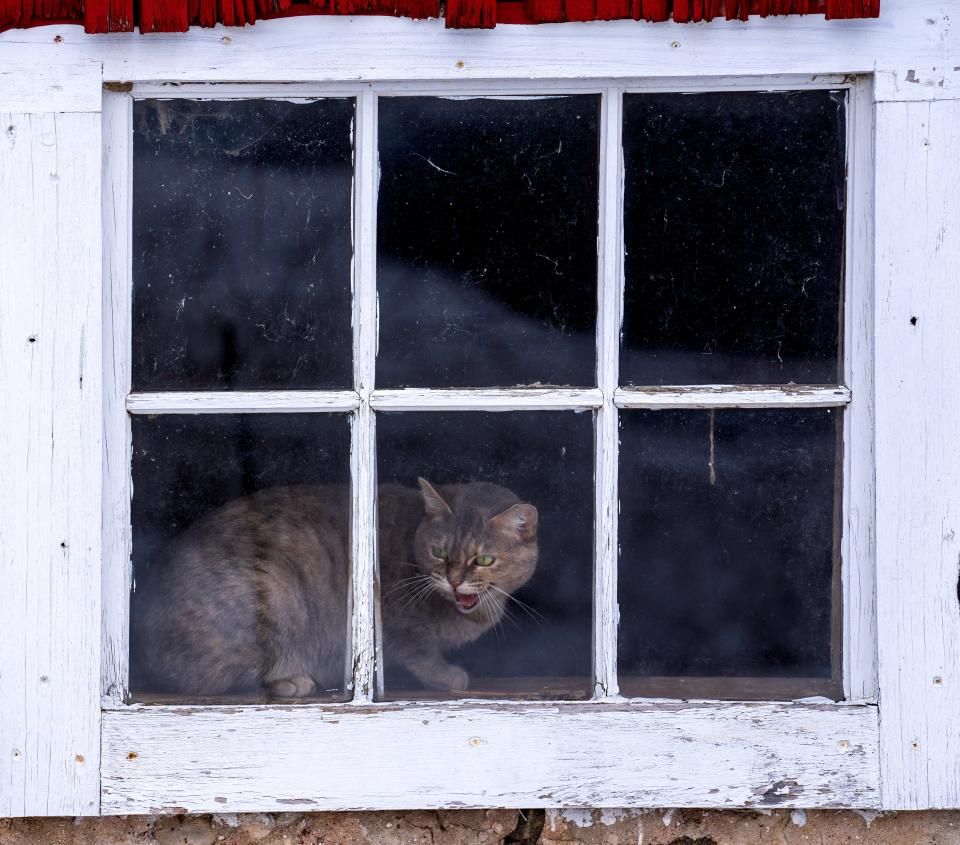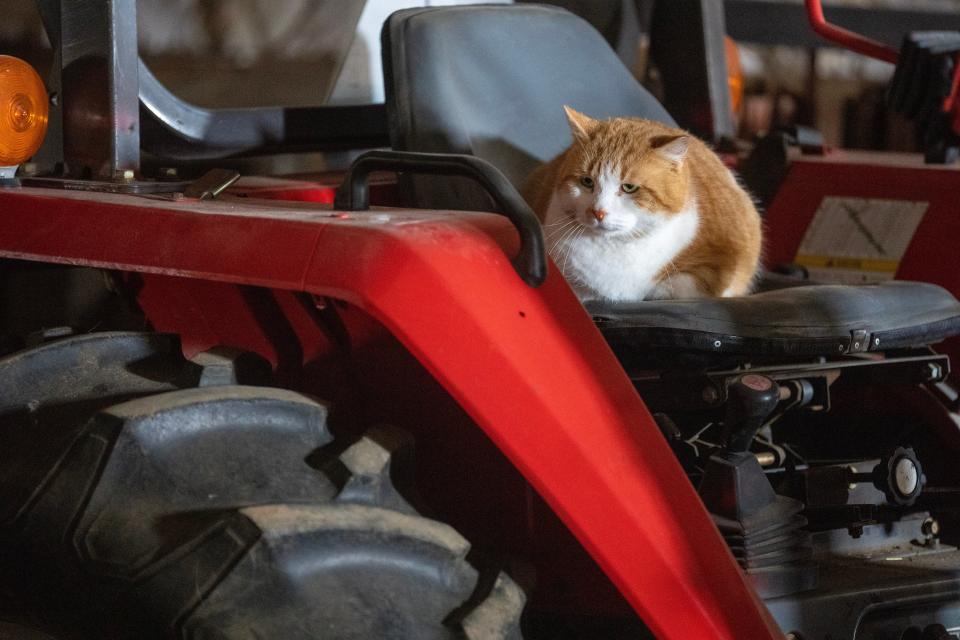These adoptable Wisconsin cats are looking for jobs, not laps to sit in
SAUKVILLE - They're working cats.
They're tough and fearless, stalk prey, control rodents.
Barns, stables and warehouses are their domain.
They're not soft and cuddly, not meant for human touch and would never spend a lazy winter's day indoors by a fire.
But in their own way, they're beautiful animals.
And they're available to be adopted from the Wisconsin Humane Society as part of the organization's "Working Cat Program."
The society launched the program in 2015 and since then has placed more than 1,000 working cats, also known as barn cats. In 2022, the society had 172 working-cat adoptions out of a total of 10,997 cat adoptions.
"Working cats are different," said Angela Speed, who directs communications for the Humane Society. "They're cats who have lived outdoors and come to us as strays.
"The cats who qualify for working cats are not your house pets," she said. "They're not lap cats. They're under-socialized. They are not just fearful of people. They really don't like you."
Working cats are 'organic rodent control'
The society has care and relocation guidelines for the program that include providing daily food and water, and "compassionate and patient caretaking."
It's recommended that the cats be adopted in pairs.
"If they're placed together in pairs and provided with food, water, shelter in a barn, a stable, warehouses, they can slowly acclimate to that environment and are very successful at killing rodents," Speed said. "So they're good mousers. They're organic rodent control."
The Humane Society provides spay or neuter surgery, ear-tipping, testing, microchipping and initial vaccinations.
And perhaps even more than that, the society provides a second chance for the cats, who often need shelter and care when they come in after living rough, in the wild.
Humane Society workers must respect these cats' boundaries
A few months back, Journal Sentinel photographer Mark Hoffman silenced his camera and focused closely on working cats, housed in enclosures inside the Humane Society building in Saukville.
His photos capture quiet moments, a cat named Fire Sauce stretching his legs through bars to briefly grab at a worker.

Another cat named Victor Emmanuele was resting and at ease, a pile of black and white fur. Just weeks earlier he had come in as a stray, a wound above his left eye, a cut on an ear, another cut on his nose.

"They're definitely reclusive," Speed said. "They get very stressed out when they're confined."
Charlotte Coenen, an animal care technician, enjoys her time with the working cats. But she takes care, makes no sudden moves.
"Working cats are kind of interesting," she said. "They have their own personalities but they're the ones we interact the least with."
She points to one cat, who she says has a "sweet and sour" personality.
"They want to be outside," she said. "That's what they do. That's where they thrive. So handling them isn't something they enjoy. Respecting their boundaries while really providing good care is super important for all of us."
Dale, Dolly and Davie find their home

The payoff comes when the cats are adopted and adapt to new homes.
It takes time and patience.
Emily Saugen and her husband Adam adopted three working cats in November 2022. The cats settled in a barn on the family's property in the Town of Jackson.
Acclimating the animals was a process.
"We followed the instructions from the humane society," Emily Saugen said. "A lot of what they said was to keep them in crates for a couple of weeks. We kept them near each other so the cats could see and smell each other.
"After a few weeks of them living in crates, we opened the crates and kept them in a smaller portion of the barn. Eventually we opened them up to the full barn.
"And recently we opened up the barn to the outside and prayed the cats didn't leave us. They've been sticking around so far."
It was a new venture for the family, observing Dale, Dolly and Davie, giving them space, letting them thrive.

"We love our cats," Emily Saugen said. "Having them around is fun. We watch them run around the yard. We've seen a couple of them hunt in the fields."
The working cats have found their home.
This article originally appeared on Milwaukee Journal Sentinel: Wisconsin Humane Society's 'working cats' looking for adoption, jobs

